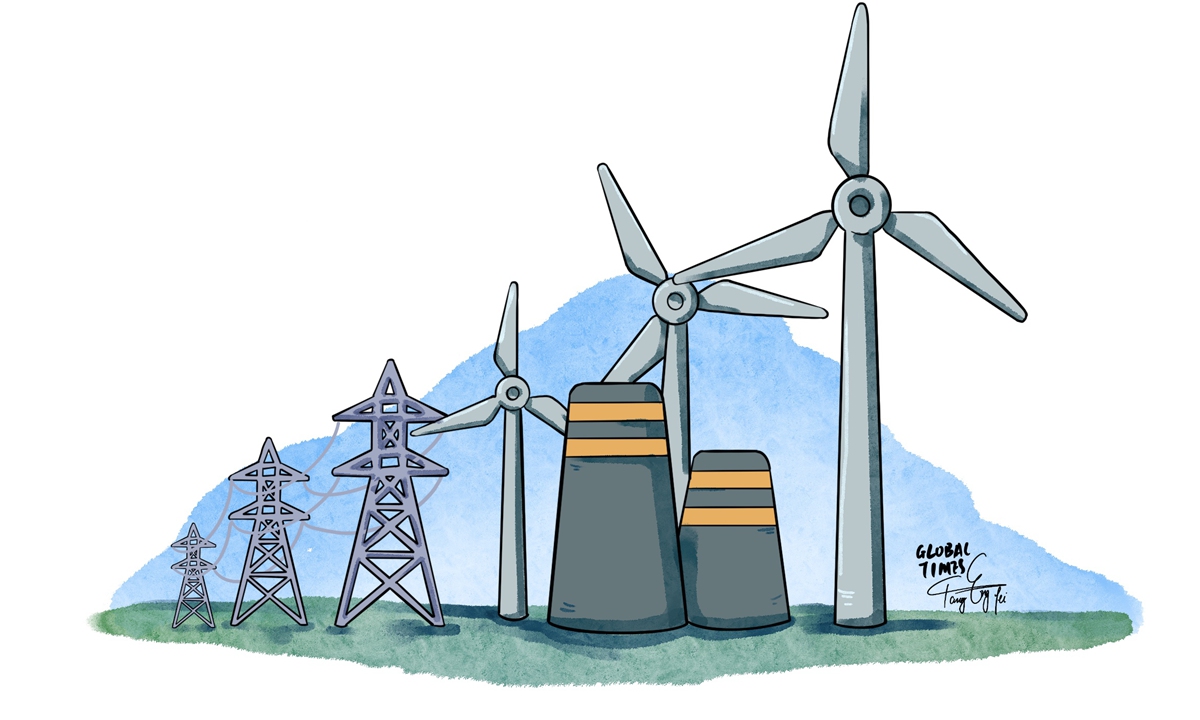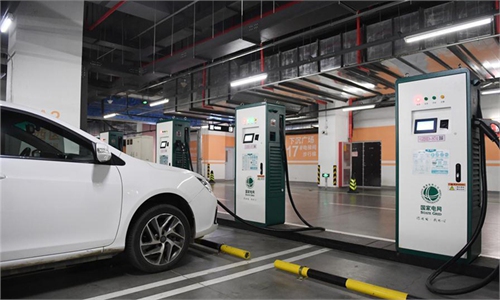COMMENTS / COLUMNISTS
Swift response to power shortage shows China’s institutional strength

Power plant. Photo: Tang Tengfei/GT
Even as the deadly COVID-19 pandemic remains a severe challenge, another crisis - one that can also be deadly and just as intricate and difficult to tackle - is emerging. Ahead of a rapidly approaching Northern Hemisphere winter, many parts of the world are facing a widespread energy crisis due to a confluence of complex factors.
In the UK, officials are struggling to come up with a plan to avert potential power cuts this winter. In the EU, an ongoing energy crisis has seen gas prices soar to record high levels amid tight supplies. In the US, prices for natural gas, which is used to generate 30 percent of all electricity in the country and a significant proportion of winter heating, has more than doubled this year, with heating bills expected to jump over 50 percent. This comes on the heels of a severe power outage in the US state of Texas earlier in the year which led to over 200 deaths.
In China, many parts of the country have also been grappling with power shortages for months, which have caused power cuts for some business operations and even restrictions on residential use. Sudden cuts on residential electricity in some parts of Northeast China in late September sparked widespread criticism and concerns over potential power outages ahead of what is expected to be an extremely cold winter season.
The power shortages prompted officials to expand coal supplies to boost power generation, including increasing domestic output and securing more imports from neighboring countries such as Mongolia. Heavy rains in North China's Shanxi, the country's biggest coal mining region, forced the shutdown of dozens of coal mines, further exacerbating concerns over coal supply.
This week, plans to increase coal imports from Mongolia were disrupted by new COVID-19 cases in North China's Inner Mongolia Autonomous Region, where several major ports were reportedly forced to shut down. On top of all that, market speculation also help pushed coal prices elevated to what Chinese officials call "irrational hikes."
Admittedly, the energy challenge in China is just as severe and complex as in many other major economies. Some foreign media outlets have even been hyping up the power shortage as a threat to not just the Chinese economy but also the entire global economy. No doubt, persistent power shortages would have serious consequences for both the economy and livelihood. Due to various factors, including the power shortages and extraordinarily high base last year, China's GDP growth slowed to 4.9 percent in the third quarter, 3 percentage points lower than the pace recorded in the previous quarter.
However, what's often missing across fear-mongering headlines in some foreign media reports are Chinese policymakers' swiftness, boldness and effectiveness in tackling serious, intricate challenges like the power shortages and the COVID-19. Intentionally or unintentionally, most foreign China watchers underestimate China's ability to address crises, as they did during the initial outbreaks of the COVID-19 early last year.
In the month since the power cuts in the country's northeast sparked concerns, Chinese officials, both at national and local levels, have moved swiftly to tackle the problem and vowed to take all necessary measures to ensure a "warm winter."
In a series of meetings and policy directives, officials urged to avoid power shortages for residential use through improved coordination in power distribution. On the supply side, officials demanded coal mines increase production while ensuring safety and environmental protection. The government banned closure of coal mines without authorization. Officials have also moved to secure coal supplies from neighboring countries such as Mongolia, which is said to increase coal exports to China by 50 percent from its current level of around 32 million tons.
This week, to tackle skyrocketing coal prices, the National Development and Reform Commission announced a rare move to intervene the coal market to curb speculation and irrational price hikes. It also dispatched teams to inspect major trading centers and coal production areas to ensure compliance. Following the series of moves, many industry players, especially state-owned companies, have taken the cue and vowed to bolster coal output and ensure steady supply.
Once again, officials have mobilized a whole-of-government campaign against the issue of power shortages just as it did in response to the COVID-19. While power shortages and broader energy challenges will likely continue or even worsen during the winter, but China's institutional strength - reflected in its swift response and its unparallel ability to mobilize - will once again help the country through the cold winter.
The author is a senior editor at the Global Times. bizopinion@globaltimes.com.cn



